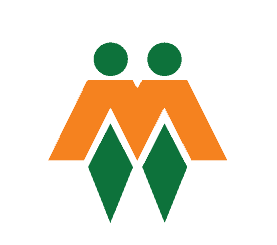AfriForum launches country-wide #CleanWater project
AfriForum yesterday launched its #CleanWater project for 2018 at the Baviaanspoort Waste Water Treatment Works. AfriForum branches across South Africa were also mobilised to test drinking and sewage water in towns where there are active AfriForum branches.
“Government is not serious about the health of South Africans. This is evident from the fact that the Department of Water and Sanitation (DWS) is bankrupt and now faces a parliamentary investigation as a result of former Minister Nomvula Mokonyane’s mismanagement of the Department. Under her leadership, the last official Blue and Green Drop Reports were published six years ago. The ANC Government attempts to hide its incompetence by withholding information from the public and even Parliament itself, while ordinary people are plagued by the water crisis. We can no longer trust Government to provide safe drinking water, and we therefore test the water quality ourselves,” says Marcus Pawson, head of Environmental Affairs at AfriForum.
The civil rights organisation ensured with its blue and green drop project in 2017 that the drinking water of almost 10 million people adhered to minimum standards by testing the water of 156 towns.
“AfriForum will ensure that any pollution is addressed as soon possible by sending letters of demand to relevant municipalities requiring them to rectify these situations within 48 hours,” says Pawson.
AfriForum will also direct an official letter to Gugile Nkwinti, new Minister of Water and Sanitation, in which the organisation will demand that –
- The DWS once again publishes the official Blue and Green Drop Reports to shed light on the country’s water quality and the management thereof;
- The 2018/2019 budget makes provision for the repair of all sewage treatment plants;
- A programme be launched to hold water contaminators responsible (Government is the biggest contaminator: 4 200 megalitres of sewage are daily released into rivers and dams without adhering to health standards);
- The 2018/2019 budget makes provision of water infrastructure in the DWS’s War against Water Leaks Project (municipalities lose more than 40% of drinking water because of water leaks);
- South Africans who are competent be appointed to manage the country’s water systems (according to a 2013 report by the DWS, only 21% of water systems had the necessary number of supervisors in terms of complying with service requirements, while 66% of these systems were managed by supervisors who did not have the necessary qualifications);
- The current organigramme and structure of the DWS be reviewed to identify and scrap redundant posts and fill vacancies;
- Incompetent officials or officials with a history of corrupt relationships are removed; and
- All completed investigations against the DWS by the Special Investigations Unit and independent consultation firms be published to promote transparent processes.
As the custodian of water, the DWS is neglecting its responsibilities by not applying legislation where municipal governments are the perpetrators. AfriForum believes that an independent water regulator will play a meaningful part in improving water quality, provision and management.
“If South Africa has an independent water regulator who is free from political interference and who can enforce water and service delivery legislation, there would be less leaks, public complaints and protests, cleaner rivers and dams, healthier communities, a growing economy and more water,” Pawson says.
Is your water clean? SMS the name of your town to 45354 to give AfriForum the mandate to have your water tested. Each SMS costs R1.


